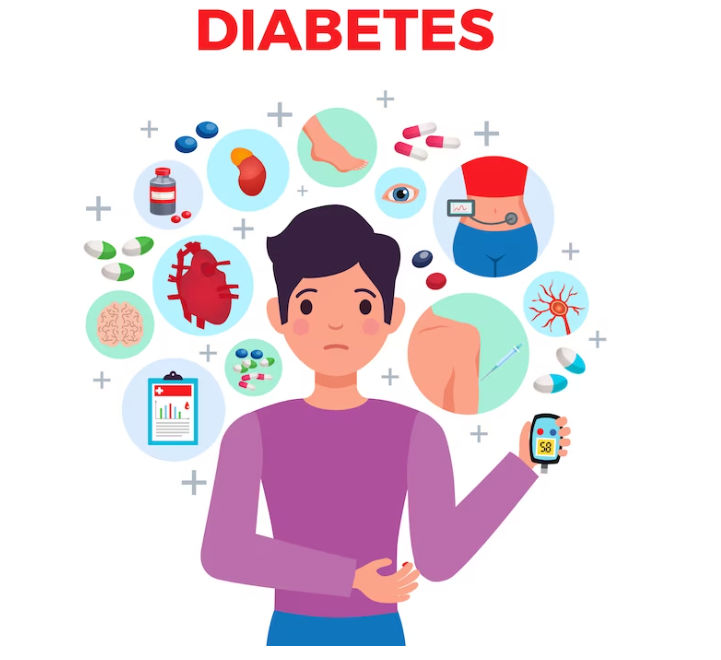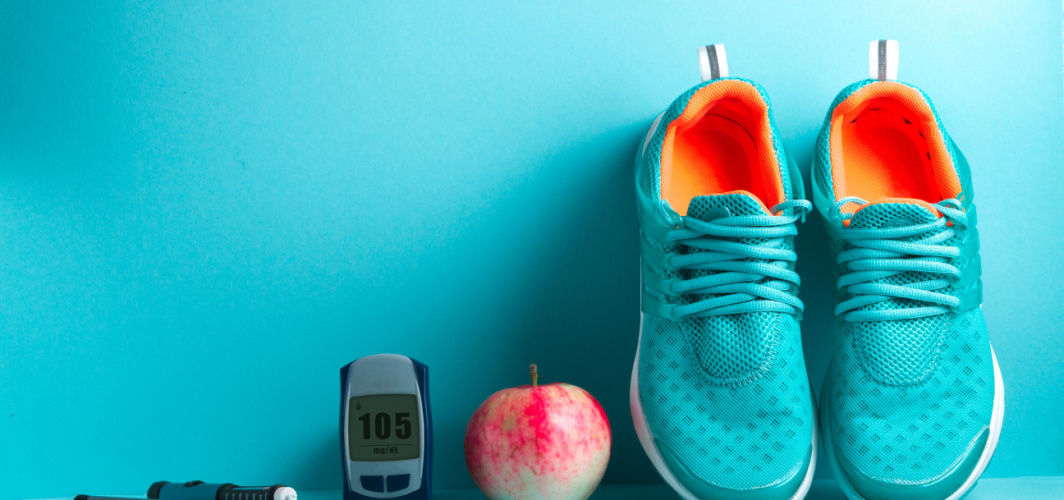Diabetes Management
Navigating Through Emotional Challenges in Diabetes Management
2 min read
By Apollo 24|7, Published on - 11 March 2024
Share this article
0
0 like

Diabetes management isn't just about keeping your blood sugar levels in control but also about managing the emotional storm that the condition might bring along. According to the International Diabetes Federation, the number of diabetics across the globe is projected to rise to 643 million by 2030, many of whom may be prone to similar emotional challenges. Fear, anxiety, guilt, and burnout are common feelings that may surface while managing diabetes. However, there are effective strategies you can adopt to manage these overwhelming emotions and maintain your emotional well-being.
Easing Anxiety with Relaxation Techniques
Relaxation practices such as meditation and yoga can be powerful tools to calm your mind and manage stress related to diabetes management. These techniques promote relaxation by reducing your heart rate and blood pressure, helping you maintain a positive mental state.
Building a Support System
You don’t have to handle diabetes alone, you can:
- Engage with diabetes support groups where you can share experiences and learn from others in the same boat.
- Consult a mental health counselor who specializes in chronic health conditions. They can provide strategies tailored to your needs.
- Talk to trusted family members or friends about your feelings and concerns. Their understanding can mean more than you might think.
Managing Expectations and Mental Well-being
Remember that it's okay not to be perfect. Try the following techniques:
- Set realistic diabetes management goals: Trying to do everything at once can lead to frustration.
- Avoid self-blame: Remember that making mistakes is part of the learning process.
- Reward yourself for small victories: This can boost your motivation and self-esteem, making diabetes management less daunting.
Implementing Mindfulness and Tracking Emotions
- Practice mindfulness by staying present in the moment and acknowledging your feelings without judgment.
- Maintain a mood diary to track your emotions and identify patterns. This could help recognize triggers affecting your physical health.
- If you notice signs of depression or anxiety, talk to your doctor right away. They can refer you to a mental health professional.
Remember, taking breaks from constant diabetes management and engaging in activities you enjoy is crucial to prevent burnout.
Diabetes Management
Consult Top Diabetologists
View AllLeave Comment
Recommended for you

Diabetes Management
Can Diabetes be Managed Through Lifestyle Changes Alone?
Lifestyle changes aid in diabetes management: balanced diet, exercise, weight control, stress reduction. They don't cure but effectively manage and may lead to remission. Work with healthcare providers for personalized plans, including medication or insulin for type 1 diabetes.

Diabetes Management
Monsoon Care for Diabetes: 9 Things Every Diabetic Must Know
The rainy season can affect people with diabetes as during this time of the year, intestinal & functions become weak which can result in low metabolism and increased fat storage. To stay on track, monitor your levels regularly. Keep insulin and diabetes supplies on hand. Drink clean water to prevent infections, and be cautious with street food. Protect your feet from fungal infections by keeping them dry.
.jpg?tr=q-80)
Diabetes Management
Diabetes Management: Your Guide to Selecting a Blood Glucose Meter
Choosing the right blood glucose meter plays a crucial role in managing diabetes effectively. Consider factors like accuracy, ease of use, blood sample size, test speed, memory, app connectivity, and cost. The Apollo Smart Glucometer, for instance, not only provides accurate readings but also offers real-time glucose data, personalised advice and unlimited access to the Diabetes Self-Management tool, facilitating effective diabetes management.
Subscribe
Sign up for our free Health Library Daily Newsletter
Get doctor-approved health tips, news, and more.
Visual Stories

8 Fruits That are Incredibly Healthy for Diabetes
Tap to continue exploring
Recommended for you

Diabetes Management
Can Diabetes be Managed Through Lifestyle Changes Alone?
Lifestyle changes aid in diabetes management: balanced diet, exercise, weight control, stress reduction. They don't cure but effectively manage and may lead to remission. Work with healthcare providers for personalized plans, including medication or insulin for type 1 diabetes.

Diabetes Management
Monsoon Care for Diabetes: 9 Things Every Diabetic Must Know
The rainy season can affect people with diabetes as during this time of the year, intestinal & functions become weak which can result in low metabolism and increased fat storage. To stay on track, monitor your levels regularly. Keep insulin and diabetes supplies on hand. Drink clean water to prevent infections, and be cautious with street food. Protect your feet from fungal infections by keeping them dry.
.jpg?tr=q-80)
Diabetes Management
Diabetes Management: Your Guide to Selecting a Blood Glucose Meter
Choosing the right blood glucose meter plays a crucial role in managing diabetes effectively. Consider factors like accuracy, ease of use, blood sample size, test speed, memory, app connectivity, and cost. The Apollo Smart Glucometer, for instance, not only provides accurate readings but also offers real-time glucose data, personalised advice and unlimited access to the Diabetes Self-Management tool, facilitating effective diabetes management.

